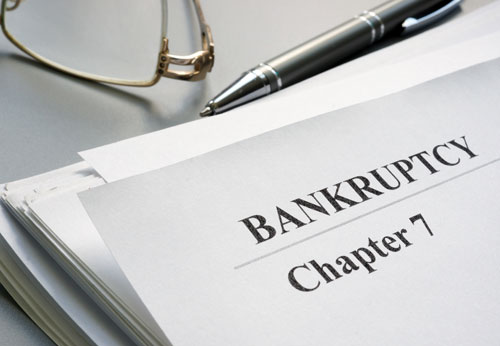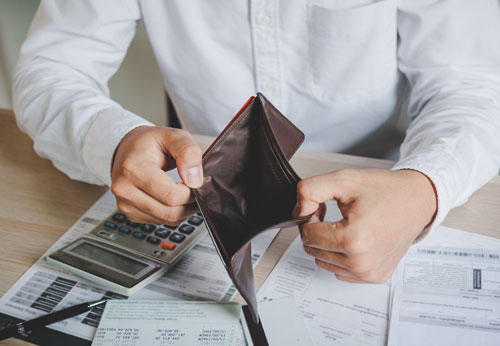Thinking of filing for bankruptcy? Get to know the debts you can discharge using Chapter 7 bankruptcy.
Bankruptcy is often frowned upon, but it is an excellent tool when you want to erase substantial debt. However, before filing for bankruptcy, you have the difficult task of deciding which type of bankruptcy suits your needs out of the three types of bankruptcy options available.
One of the things you should know about bankruptcy is that debts are treated differently with each bankruptcy. This is why you should take time to find out which bankruptcy you should file under to resolve your debt issues.
Obviously, working with an experienced bankruptcy lawyer can help you decide the type of bankruptcy that will best serve your needs. At Hobaica Law Office, we have vast experience helping our clients file bankruptcy. What makes us different is that we understand the difficulty and anguish that most people have with filing bankruptcy, and our goal is to always get you the best results to make all the trouble worth it.


The key factor to keep in mind when filing a Chapter 7 bankruptcy is that it works for unsecured debt. Unsecured debt under Chapter 7 bankruptcy is defined as a debt that isn’t backed by collateral. If you entered a credit contract that didn’t require you to allow the creditor to take the property purchased if you didn’t comply with the contract terms.
Some of the debts you can discharge by filing for Chapter 7 include the following:
This is just a simplified list of the debts you can discharge using Chapter 7 bankruptcy. You can consult with your Chapter 7 bankruptcy lawyer for a more comprehensive list and to confirm whether your types of debt are covered.
Another crucial aspect to consider with Chapter 7 bankruptcy is the types of debt that you cannot discharge. When you get the discharge order after successfully filing for Chapter 7 bankruptcy, it will not list the debt you wiped out. However, it will list the debts you will remain responsible for paying, which may include the following:


Even after filing a Chapter 7 bankruptcy, you still need to keep certain essentials to help you remain productive in society. Chapter 7 allows some exemptions to ensure this. However, exempt asset laws are both at the federal and state levels. But generally, some of the assets that might be exempt in a Chapter 7 filing include the following:
Typically, judges rely on the law when determining the exempt assets but also practice discretion when categorizing the different assets and items that you can keep.
Let’s help you lay down the debt burden and start working towards a new financial future.
Are you thinking of filing for bankruptcy and starting over fresh? Filing for Chapter 7 bankruptcy can help you offset regular debt payments that you can’t reorganize using non-exempt assets. While typically filed by individuals, small businesses looking to close down can also use Chapter 7 bankruptcy to liquidate their assets and pay off their creditors with the help of a small business bankruptcy attorney.
Whether you’re filing Chapter 7 for yourself or your small business, you need a bankruptcy lawyer near me in Watertown, NY to help you with the process and the Hobaica Law Office is here to assist. You can contact us at (315) 627-2800 for assistance with filing for Chapter 7 bankruptcy.
